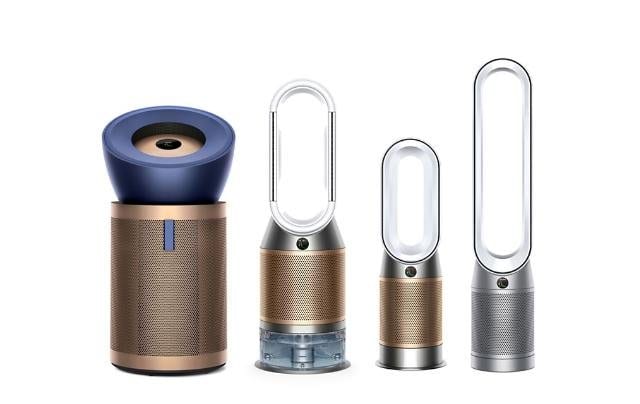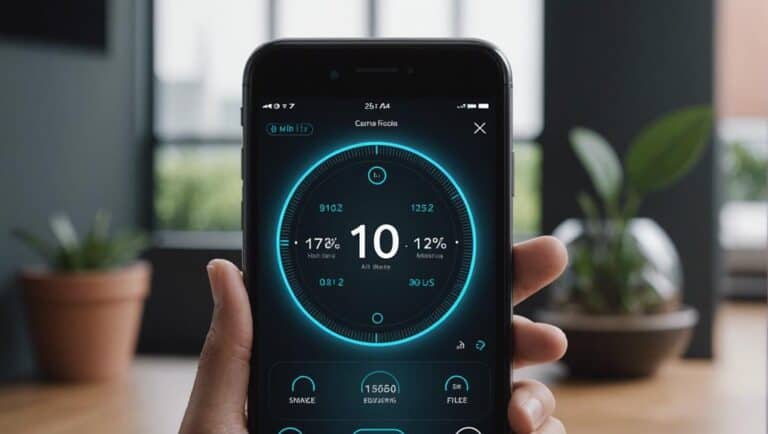Unlocking Benefits: The Definitive Guide to Determining if Dyson Air Purifier is FSA Eligible
Air purifiers have become an essential home appliance for many individuals, helping to maintain clean and healthy indoor air quality. With a wide array of options available in the market, it can be challenging to determine which one will not only effectively cleanse your environment but also provide financial benefits.
In this comprehensive guide, we delve into the intricate details of determining if Dyson Air Purifiers are eligible for Flexible Spending Account (FSA) reimbursement. By exploring the ins and outs of FSA qualifications, understanding Dyson’s innovative technologies, and uncovering potential advantages, this definitive article aims to unlock all the benefits associated with owning a Dyson Air Purifier while maximizing your financial resources.
Understanding Flexible Spending Accounts (FSAs) and their Benefits
Flexible Spending Accounts (FSAs) are a valuable benefit offered by many employers. They allow employees to set aside pre-tax dollars from their paycheck to pay for eligible medical expenses.
Here are some key points to know about FSAs and their benefits:
- Tax advantages: Contributions to FSAs are made with pre-tax dollars, meaning that the money is deducted from your paycheck before taxes are calculated. This can result in substantial tax savings.
- Covered expenses: FSAs can be used to pay for a wide range of eligible medical expenses, including prescriptions, doctor’s visits, dental care, and even certain over-the-counter items like bandages or sunscreen.
- Use it or lose it: It’s important to note that FSA funds typically have an expiration date. If you don’t use all the money in your account by the end of the plan year, you may forfeit those funds.
- Contributions limits: The IRS sets annual contribution limits for FSAs. In 2021, the maximum amount an employee can contribute is $2,750.
Understanding how FSAs work and taking advantage of this benefit can help save you money on healthcare expenses.
Qualifying Criteria for FSA Reimbursement
To determine if the Dyson Air Purifier is eligible for reimbursement through your Flexible Spending Account (FSA), certain criteria must be met. Here are some key factors to consider:
- Medical necessity: The purchase of a Dyson Air Purifier may qualify as an FSA expense if it is deemed medically necessary by a healthcare professional. This means that you must have a documented medical condition, such as allergies or asthma, which can be alleviated or improved by using an air purifier.
- Prescription requirement: In some cases, a prescription from your healthcare provider may be required for FSA reimbursement eligibility. This can depend on your specific FSA plan and its guidelines. Make sure to consult with your insurance provider or benefits administrator to determine if this requirement applies to you.
- Plan coverage: Not all FSAs cover the cost of air purifiers, so it’s essential to review your plan documents carefully. Check whether air purifiers fall within the list of eligible expenses outlined in your plan summary or contact customer service for clarification.
By understanding and satisfying these qualifying criteria, you can determine if purchasing a Dyson Air Purifier will qualify for reimbursement through your FSA account while benefiting from cleaner and healthier indoor air quality during allergy season.

Analyzing the Innovative Technologies of Dyson Air Purifiers
Dyson air purifiers incorporate cutting-edge technologies that make them stand out in the market. Here are some key features to consider:
- HEPA Filtration: The inclusion of High Efficiency Particulate Air (HEPA) filters ensures that Dyson air purifiers can capture particles as small as 0. 3 microns, including dust, pollen, mold spores, and pet dander. This advanced filtration system helps improve indoor air quality significantly.
- 360° Glass HEPA Filter Technology: Unlike traditional air purifiers, which often have filters only on one side or require frequent replacements, Dyson’s 360° Glass HEPA filter is designed to provide superior filtration efficiency for up to a year before needing replacement.
- Activated Carbon Filters: In addition to HEPA filtration, Dyson air purifiers also come equipped with activated carbon filters that effectively remove unpleasant odors from the surrounding environment.
- Air Multiplier Technology: Dyson’s patented Air Multiplier technology ensures that purified and filtered air is distributed evenly throughout the room by projecting it further and wider than traditional airflow systems allow.
By leveraging these innovative technologies together, Dyson has created a range of top-performing air purifiers suitable for various living spaces – from small bedrooms to large open areas like offices and living rooms.
Evaluating the Health Benefits of Dyson Air Purifiers
Dyson air purifiers are known for their advanced technology and sleek design, but what sets them apart is their ability to improve indoor air quality. These devices can effectively remove pollutants like dust, pollen, pet dander, and even volatile organic compounds (VOCs) from the air. By capturing these harmful particles, Dyson air purifiers help reduce the risk of allergies and asthma attacks.
One key feature of Dyson air purifiers is their powerful HEPA filters. These filters are designed to trap particles as small as 0. 3 microns with an efficiency of 99. 97%. This means that they can efficiently capture even the tiniest airborne allergens, ensuring cleaner and healthier air in your home.
In addition to removing allergens, Dyson air purifiers also have a carbon filter that helps eliminate odors and VOCs. This is especially beneficial for households with smokers or pets, as it helps neutralize unpleasant smells and harmful chemicals in the air.
Key health benefits of using Dyson Air Purifiers:
- Improves indoor air quality by removing allergens like dust, pollen, and pet dander.
- Reduces the risk of allergies and asthma attacks.
- Removes odors and volatile organic compounds (VOCs), providing a fresher environment.
- Powerful HEPA filters capture particles as small as 0. 3 microns with an efficiency rate of 99. 97%.
- Well-suited for households with smokers or pets due to its effective odor elimination capabilities.
When evaluating whether a Dyson Air Purifier is FSA eligible for purchase using your flexible spending account funds or not; there are multiple factors you should take into consideration such us costs & overall eligibility criteria set out by relevant government authorities otherwise; you may ask experts at ClaimsFiler which specializes in submitting claims on behalf individuals who utilize this type of account.
Exploring the Cost-effectiveness of Dyson Air Purifiers
Dyson air purifiers may seem expensive upfront, but they can prove to be a cost-effective investment in the long run. Here are a few key points to consider:
- Energy Efficiency: Dyson air purifiers are designed to be energy efficient, meaning they consume less electricity compared to other models. This leads to reduced energy bills and cost savings over time.
- Health Benefits: By removing allergens and pollutants from the air, Dyson air purifiers can improve indoor air quality and contribute towards better health. This could potentially reduce healthcare expenses associated with respiratory illnesses or allergies.
- Long-lasting Filters: Dyson’s advanced filtration system is built to last for up to a year before requiring replacement. While filter replacements come at an additional cost, their longevity helps minimize ongoing maintenance expenses.
Ultimately, when evaluating the cost-effectiveness of a Dyson air purifier, it’s important to weigh these factors against your specific needs and budget constraints. However, considering their energy efficiency, potential health benefits, and durable filters, investing in a Dyson air purifier can offer long-term value for your money.
Steps to Determine if Dyson Air Purifiers are FSA Eligible
To determine if a Dyson Air Purifier is eligible for FSA reimbursement, follow these steps:
- Review your FSA plan guidelines: Start by reviewing your Flexible Spending Account (FSA) plan guidelines to understand what expenses are eligible. Check if air purifiers or related products fall within the approved categories.
- Consult with your employer’s benefits office: If you’re still uncertain about whether a Dyson Air Purifier qualifies, reach out to your employer’s benefits office for clarification. They can help guide you through the eligibility process and provide any necessary documentation.
- Research IRS regulations: Familiarize yourself with Internal Revenue Service (IRS) regulations on medical expenses that qualify for FSA reimbursements. Look specifically for information related to air purification systems or similar devices.
Remember, each individual’s situation may vary, so it is essential to consult both your specific FSA plan guidelines and relevant tax rules when determining the eligibility of Dyson Air Purifiers for reimbursement under an FSA account.






